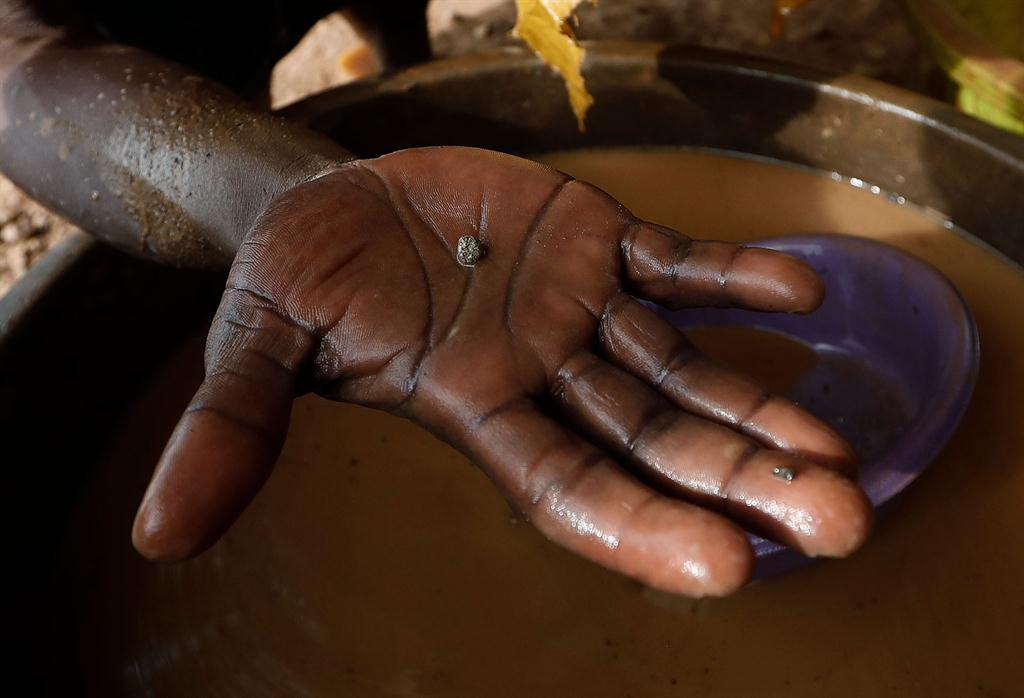Gold smuggling costs Zim US$1.5 bn a year
The miners are not happy with a payment system which requires them to sell their gold to the state-owned buyer.
Harare - A report published Tuesday by a global research group estimated that cash-strapped Zimbabwe is losing at least US$1.5 billion a year through the smuggling of gold, mainly to traders in Dubai.
The figure is higher than the government's own estimates of US$1.2 billion a year lost through the illicit gold trade
"Estimates suggest that more than US$1.5 billion worth of gold leaves Zimbabwe illegally each year, often ending up in Dubai," said the report by the International Crisis Group.
"Some dealers estimate that illegal exports top official deliveries," to the country's formal refinery.
The landlocked southern African country boasts vast gold reserves, and the sector accounts for 60% of Zimbabwean exports.
Last month, the head of Zimbabwe's artisanal and small-scale mining federation was arrested with six kilos of gold worth over US$360 000 in her hand luggage just before boarding a flight to Dubai.
CURRENCY
The gold sector provides jobs to nearly 10% of the country's population, according to the report.
"Amid the collapsing economy, an estimated 1.5 million people have turned to artisanal mining as a safety net," said the report, adding poverty and the fallout from the Covid-19 pandemic will likely drive more people towards the sector.
According to official figures, gold production in the first eight months of 2020 rose 10%, driven especially by output from small-scale miners.
But the miners are not happy with a payment system which requires them to sell their gold to the state-owned buyer, Fidelity Printers and Refiners.
They are paid 55% in foreign currency, with the remaining 45% in Zimbabwean dollars, which is notorious for its weakness.
"Zimbabwe's centralised gold-buying scheme underpays producers, a practice that encourages smuggling and erodes industrial mining profits, leading companies to close mines," said the ICG.
The idle industrial mines have become "targets for intrusion by artisanal miners", it said.
Last year a wave of violence rocked the artisanal mining sector. – Nampa/AFP
The figure is higher than the government's own estimates of US$1.2 billion a year lost through the illicit gold trade
"Estimates suggest that more than US$1.5 billion worth of gold leaves Zimbabwe illegally each year, often ending up in Dubai," said the report by the International Crisis Group.
"Some dealers estimate that illegal exports top official deliveries," to the country's formal refinery.
The landlocked southern African country boasts vast gold reserves, and the sector accounts for 60% of Zimbabwean exports.
Last month, the head of Zimbabwe's artisanal and small-scale mining federation was arrested with six kilos of gold worth over US$360 000 in her hand luggage just before boarding a flight to Dubai.
CURRENCY
The gold sector provides jobs to nearly 10% of the country's population, according to the report.
"Amid the collapsing economy, an estimated 1.5 million people have turned to artisanal mining as a safety net," said the report, adding poverty and the fallout from the Covid-19 pandemic will likely drive more people towards the sector.
According to official figures, gold production in the first eight months of 2020 rose 10%, driven especially by output from small-scale miners.
But the miners are not happy with a payment system which requires them to sell their gold to the state-owned buyer, Fidelity Printers and Refiners.
They are paid 55% in foreign currency, with the remaining 45% in Zimbabwean dollars, which is notorious for its weakness.
"Zimbabwe's centralised gold-buying scheme underpays producers, a practice that encourages smuggling and erodes industrial mining profits, leading companies to close mines," said the ICG.
The idle industrial mines have become "targets for intrusion by artisanal miners", it said.
Last year a wave of violence rocked the artisanal mining sector. – Nampa/AFP




Comments
Namibian Sun
No comments have been left on this article